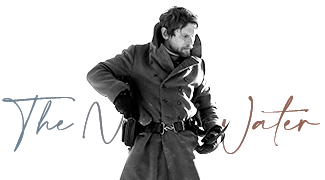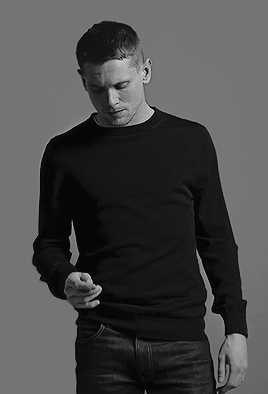Jack is featured on the cover of GQ Hype. You can check out the photos from the shoot in the gallery and read his interview below where he talks about The North Water and other projects.




GQ HYPE – To see Jack O’Connell drifting on deck through the scenic fjords of Svalbard, 1,000 kilometres north of Norway, you’d never have guessed the traumas he was there to film. En route by boat to Arctic waters to shoot The North Water, a BBC survival drama set on an 1850s whaling ship, O’Connell and his cast mates Colin Farrell and Stephen Graham would soon find themselves reenacting murder, theft, on-board sexual assault and a lot of bloody seal and whale hunting. But for a short period, things were utterly peaceful and even quite temperate under the low-slung Arctic summer sun. “There were some really unforgettable moments,” recalls O’Connell, “of setting sail and ending up in these glacier fjords. Sitting there with your mates, pint in hand, going ‘Look where we are.’ It was mind-boggling.”
Mind-boggling is an apt way to describe much of The North Water, which is based on a novel by the author Ian McGuire. While most of the action takes place north of the Arctic Circle, the series begins in tropical-by-comparison Hull in 1859, where the whaling ship Volunteer is about to set sail on a final, possibly lucrative voyage to fill her hold with blubber. An early hint as to how the trip will pan out comes in the form of a cheery quotation from Schopenhauer during the opening credits: “The world is hell, and men are both the tormented souls and the devils within it.”
Among the undesirables assembled to crew the Volunteer is master harpoonist Henry Drax, played by a hirsute Farrell, and the ship’s surgeon, Patrick Sumner, who O’Connell plays. Drax, fittingly enough for an era when Darwin was the talk of Victorian society, is the living, brutal embodiment of “survival of the fittest.” A bearded man who will brutalise his crewmates for a dram of whisky or even trade his boots for a drink if there’s nobody around to rob, Drax carries a lank, latent threat and acts on pure impulse.
Sumner, meanwhile, is a surgeon and an educated man, albeit one with a murky past. A little uptight and reserved, he reads Homer and keeps a journal to try to make sense of what goes on around him – a mistake on a ship where there is no deeper meaning to life than killing for money. Sumner is also nursing a laudanum addiction triggered by the cruelty he saw in action during the Indian Mutiny and carries a belief in the rule of law that quickly puts him on a collision course with Drax. “It’s important to Sumner to maintain order,” explains O’Connell. “When there’s a victim, he takes it on board as his responsibility to see that the perpetrator is punished. That lands him in Drax’s crosshairs – he’s the target of a lethal killer.”
Sumner is quickly forced to embrace his violent side to survive the Arctic. And how violent. Almost every character in The North Water is packing a knife or a blackjack and most exist exclusively on hard spirits. Life is cheap amid the pack ice; over six parts, as madness and hardship begin to set in for the ship’s crew, the show borders on Moby Dick and Heart Of Darkness territory. “We’re refugees from civilisation,” Graham’s Captain Brownlee says of his crew at one point and the theme of a battle in each man between civilisation and savagery quickly takes root. And if Drax represents savagery then, as O’Connell explains, Sumner is the embodiment of civilisation and rationality. “Sumner has an infatuation towards Drax. He’s trying to academically understand everything, whereas Drax just feels his way through life, acting on impulse, doing whatever pleases him at the time.”
<For the shoot, the cast and crew spent six weeks in the Arctic, living and filming on two boats – one modern, with all the pursuant comforts (including a bar, hence those fjordside pints), and one replica of a period whaler. Such was Farrell’s dedication to Drax that he even slept on The North Water’s replica ship and mucked in with the crew, who were all employed as extras, when there was work to be done.
O’Connell, meanwhile, read the journals of a real whaling ship’s surgeon named Charles Edward Smith, published under the title From The Deep Of The Sea. It left an impression. “The lengths that they have to go through to keep this thing going…” He pauses. “It’s at the cost of human life. Reading a first-hand account of that, it’s mesmerising, stark and it lives with you.” O’Connell, like his character and Smith, soon began keeping a journal on board to pass the days on the ice.
There was a time, looking back at O’Connell’s early roles, that he might have been cast in Farrell’s role, as the impulse-driven killer, the nihilist Drax, and he praises his casting against the grain in The North Water as an opportunity “to not play the obvious choice”. For a few years, O’Connell had a reputation as a hard-drinking tearaway both on screen and off, once telling a journalist that he “didn’t stop partying for seven years” as a reaction to the death of his father from pancreatic cancer when O’Connell was just 18. His bereavement came shortly after he’d played an abused, violent gang member in the Michael Caine revenge fantasy Harry Brown; he’d already appeared as wayward skinhead Pukey in This Is England alongside Graham, who O’Connell describes as an “unforgettable” mentor, and in Skins as Cook, the bad boy of the legendary teen series’ second generation ensemble cast. In 2008, he played the leader of a handful of murderous teenagers in slasher Eden Lake, stalking a terrified Michael Fassbender and Kelly Reilly through a timely parable about Britain’s fear of its “left behind” white youth. It wouldn’t have been unreasonable for anyone witnessing his career up to, say, 2011 to have predicted that O’Connell was on track for a solid lifetime of playing violent thugs and petty criminals.
And yet, O’Connell has since shrugged off being typecast with aplomb. At 31, he has a compelling string of roles to his name, many of them military men – a trend all the more fascinating when considering the fact O’Connell considered joining the army as a young man. He turned in an acclaimed portrayal of the real-life war hero Louis Zamperini in Angelina Jolie’s Unbroken in 2014 and took on another army role as a squaddie in Northern Ireland for the Troubles thriller 71 the same year.
When we speak, he has just finished filming a miniseries called SAS: Rogue Heroes in Morocco, a shoot that O’Connell describes as the polar opposite, environmentally, of The North Water. The story of the foundation of the SAS during the Second World War, Rogue Heroes thrust O’Connell on location deep in the North African desert with fellow cast mates Dominic West and Sex Education’s Connor Swindells. He relished it. “It got to 50C,” O’Connell says. “People were dropping from sunstroke. But if you’re under the cosh a little bit, it’s one less thing to have to play. You are reacting to the elements and anything beats being in a soundstage with a load of green screen.”
Despite his own past ambitions and recent penchant for challenging location shoots, O’Connell doesn’t quite feel he’s exploring a path untrodden when he plays soldiers. He explains that it’s more a case that “War is never too far away from an individual my age. In anything that predates the 1950s, war was interwoven into day-to-day life.” As such, life not too far removed from violence is more typical for men throughout history than the relatively cloistered and cushy experiences of modern-day young men. Nonetheless, he admits that his time in Morocco left the cast feeling like something of an army unit, tough as their experience was. “I miss the boys. It was a phenomenal experience.”
If you consider O’Connell’s breakthrough This Is England, when he was 15, then he’s now been acting more than half his life. It’s clear that the experience has shaped and matured him as much as joining the army ever could have done – or his other ambition of becoming a professional footballer (Derbyshire-born O’Connell is a Derby County fan, of course, and had trials at the club as a teenager; GQ offers him our commiserations for Derby’s recent tribulations). But he worries that the routes into acting that were available to him as a working-class young man from Derby have dried up since he started out. “If you were to ask me what my advice would be to a youngster, the same age I got into it… What was available to me then isn’t available to the generation now. The school I went to has taken drama off the curriculum; my introduction to it was because that was compulsory. I could sit here for hours and express my views on that, but the only way to actively do something about it is to change things from the inside.”
To that end, he is keen to take action, and highlights the work of an acting charity called Open Door, which helps 18- to 16-year-olds with household incomes under £30,000 per annum apply to drama school. The hope is that it will help more young working-class men and women into acting careers and that one day they might find themselves in O’Connell’s position – be that marching under the 50C Maghrebi sun or venturing up past Svalbard into the frozen north, pint in hand.
















